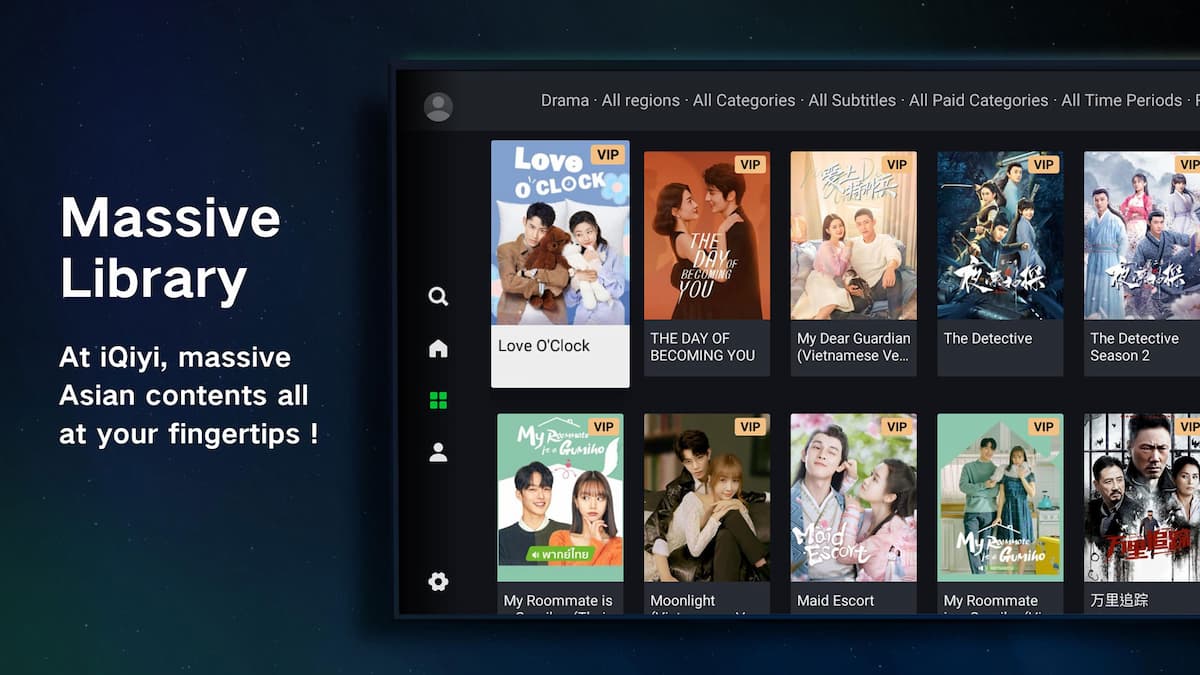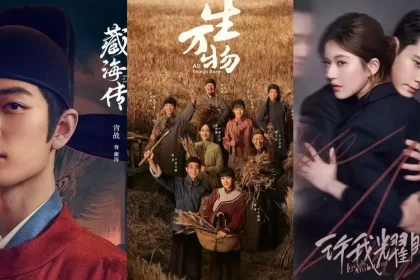LayarHijau.com — The Chinese drama The Prisoner of Beauty, starring Liu Yuning and Song Zuer, is adapted from the popular novel titled 《折腰》 (zhé yāo) by Peng Lai Ke. For international audiences, the drama’s English title sounds romantic and mysterious. But did you know that the original Chinese title carries a deeply poetic meaning rooted in classical Chinese literature?
The Meaning of “Zhé Yāo”: Bowing, But Not Because of Defeat
Literally, “折腰” means to bend the waist or to bow down. In classical Chinese culture, this phrase symbolizes yielding, humbling oneself, or submitting—whether to power, profit, or love. It draws inspiration from the famous line by poet Tao Yuanming of the Jin dynasty: “I will not bow my waist for five pecks of rice” (我不能为五斗米折腰), which expresses his refusal to sacrifice dignity for a meager official salary.
In romantic fiction, however, the meaning softens into a symbol of emotional surrender: the willingness to humble one’s pride for true love.
Background of Wei Shao’s Grudge and Political Marriage
In the novel, Wei Shao was originally betrothed not to Xiao Qiao but to Da Qiao, Xiao Qiao’s elder cousin. This arranged marriage was agreed upon by Da Qiao’s father, Qiao Yue, and Wei Shao’s grandmother, Lady Xu. As a dutiful grandson, Wei Shao could not refuse the betrothal—even though he harbored a deep grudge against the Qiao family, particularly against Xiao Qiao’s grandfather, Qiao Gui, who was considered a traitor. Qiao Gui’s betrayal on the battlefield caused the deaths of Wei Shao’s father and older brother.
The Qiao family arranged this marriage alliance to seek Wei Shao’s military help against enemies who coveted their territory, Yanzhou. However, Wei Shao believed he did not need this alliance. He thought he could wait until the Qiao family was destroyed by these enemies, and later easily defeat those enemies to expand his power in the south.
But Lady Xu had already decided that Wei Shao would marry a girl from the Qiao family. Wei Shao’s military advisor, Gongsun Yang, persuaded him to accept the marriage, arguing that Yanzhou was a strategic gateway for their campaign to conquer southern territories. With this marriage alliance, they could avoid the effort of conquering Yanzhou by military force. This reasoning was also used in the drama adaptation.
The Unexpected Turn: Xiao Qiao’s Role
However, the plan changed when Xiao Qiao helped Da Qiao elope with her lover Bi Zhi. Ultimately, Xiao Qiao married Wei Shao instead. Although initially seen as a political marriage, Wei Shao realized that his military strength made the alliance unnecessary since the Qiao family was too weak militarily to resist.
Why Marry Into the Qiao Family Then?
This opens the door to a deeper interpretation. Lady Xu, who had great influence over Wei Shao’s life, insisted on the marriage despite the apparent lack of political or military need.
Readers infer that Lady Xu wanted her grandson to live without the burden of hatred and vengeance. Because harboring hatred—especially for someone with ambitions of world domination—can poison the heart and ruin everything. By marrying into the family he hated, Wei Shao symbolically learns to let go of his grudges and chooses a more peaceful path forward.
English Title: The Prisoner of Beauty and Emotional Submission
The English title The Prisoner of Beauty can be interpreted in two ways. Literally, it could mean that the main character is a prisoner of beauty—referring to Xiao Qiao. But more deeply, it represents how Wei Shao, once cold and unyielding, becomes a “prisoner” of love, tenderness, and vulnerability.
The title does not denote physical captivity or political power but instead the quiet, beautiful surrender of one’s heart to the person they love. Thus, The Prisoner of Beauty and Zhé Yāo complement each other in portraying Wei Shao’s inner journey—from a hardened avenger to a man willing to “bow” for love.
Conclusion: Bowing for Love, Not for Power
Some viewers and readers interpret Wei Shao’s submission as a sacrifice for the greater good or for peace. But based on the novel, that interpretation is less convincing. Wei Shao is not someone who must compromise for a weak alliance, as he is militarily and politically dominant.
What truly makes him “bow” is love itself—not strategy or politics. He chooses to abandon his grudges, open his heart, and embrace a gentler future. In a world full of power struggles, bowing down for love is the quietest yet most beautiful form of victory.























